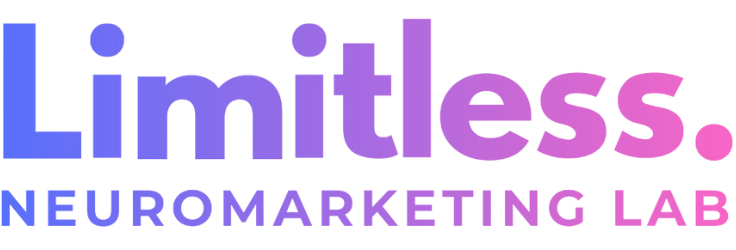Looking to hire a software development service provider for your business? This comprehensive guide is designed to help business owners navigate the decision-making process. From cost considerations to evaluating team expertise and solutions offered, this article will provide valuable insights to ensure you choose the right software development company for your needs.
Understanding Your Business Needs
Before embarking on the journey of selecting a software development service provider, it is crucial to have a clear understanding of your business needs. This involves:
Identifying specific software requirements
Determine the specific functionalities and features that your business requires. Whether it’s a customer relationship management (CRM) system, an e-commerce platform, or a custom application, having a clear idea of your software requirements is essential. Consider the scalability and flexibility of the software to ensure it can grow and adapt with your business.
Additionally, think about the level of support and training that will be necessary for your team to effectively use the software. It’s important to also evaluate the security and compliance features of the software to ensure it meets the necessary standards for your industry. Furthermore, consider the integration capabilities of the software with other tools and systems that your business uses to ensure seamless operations.
Once you have identified the specific functionalities and features your business requires, it’s crucial to thoroughly research and compare different software options to find the best fit. Consider conducting demos or trials to get a hands-on experience with the software and assess its usability and compatibility with your business processes.
Additionally, seek feedback from other businesses in your industry to learn from their experiences with similar software solutions. It’s also important to carefully review the pricing and licensing models to ensure that the software aligns with your budget and long-term financial goals. Taking the time to thoroughly evaluate these factors will ultimately lead to the selection of a software solution that will support and enhance your business operations.
Assessing current challenges and pain points
Identify the current challenges and pain points within your business operations that the software solution aims to address. Understanding these pain points will help in communicating your needs effectively to potential service providers.
After identifying the challenges and pain points, it is important to clearly outline the specific requirements and functionalities that are essential for addressing these issues. This will help in evaluating potential software solutions and ensuring that they align with your business needs. Additionally, it is crucial to involve key stakeholders and end-users in the process to gather diverse perspectives and ensure that the selected software solution meets the needs of all relevant parties. By taking these steps, you can effectively streamline your business operations and maximize the benefits of the software solution.
Defining project scope and objectives
Clearly define the scope of the software development project and set measurable objectives. This will help in evaluating the potential service providers based on their ability to meet your project requirements.
After we decide what we want to do and what we want to achieve, we need to make a list of the things we expect to get from the people helping us. This will help us know what to expect and when to expect it. We also need to decide how much money we can spend and if there are any rules or limits we have to follow. By doing this, we can tell the people who want to help us exactly what we need and make sure we pick the best one for the job.
Next, we should also consider the timeline for the project and communicate it clearly to the people assisting us. This will ensure that everyone is on the same page and can plan accordingly. Additionally, we should establish a system for regular updates and feedback to keep the project on track. It’s important to maintain open communication and address any concerns or challenges that may arise along the way. By setting clear expectations and maintaining open lines of communication, we can increase the likelihood of a successful outcome.
Researching Potential Service Providers
Once you have a clear understanding of your business needs, the next step is to research potential service providers. This involves:
Utilizing online resources and directories
Utilize online resources and directories to create a list of potential software development companies. Websites, such as Clutch, GoodFirms, and The Manifest, provide valuable insights and reviews about various service providers.
Once you have compiled a list of potential companies, it is important to thoroughly research each one to ensure they meet your specific requirements. Look for companies with experience in your industry, a strong portfolio of successful projects, and positive client testimonials. Additionally, consider reaching out to your professional network for recommendations and referrals to further narrow down your options. This comprehensive approach will help you find a software development company that aligns with your needs and goals.
After thoroughly researching potential software development companies, it’s important to schedule meetings or calls with the top contenders. This will give you the opportunity to ask specific questions about their experience, process, and approach to projects. It’s also a chance to gauge their communication style and overall fit with your team. During these interactions, consider asking for case studies or examples of similar projects they have completed in the past. This will provide valuable insight into their capabilities and the quality of their work. By taking the time to meet with each company, you can make a well-informed decision that aligns with your needs and goals.
Seeking referrals and recommendations
Seek recommendations from business associates, industry peers, and professional networks. Referrals from trusted sources can provide valuable insights into the reliability and quality of service of potential providers. Consider reaching out to trade associations or chambers of commerce for recommendations as well. These organizations often have a network of reputable service providers that they can recommend.
Additionally, don’t hesitate to ask for references from the potential providers themselves. Speaking with their current or past clients can give you a better understanding of their track record and the level of satisfaction their clients have experienced. Once you have gathered recommendations and references, take the time to thoroughly vet each potential provider to ensure they align with your business needs and standards.
Evaluating company portfolios and case studies
Review the portfolios and case studies of the shortlisted companies to gauge their expertise and the types of projects they have undertaken. This will give you a sense of their capabilities and the quality of their work. Consider reaching out to their previous clients for references to get a better understanding of their professionalism and reliability.
You should set up a meeting with the companies you are interested in to talk about your project and see if they are good at solving problems and communicating. Make sure to also check if their schedule and budget matches what you need for your project. This will help you choose the best company for your project.
After the meetings with the shortlisted companies, it’s important to carefully review their proposals and assess how well they understand your project requirements. Look for companies that demonstrate a clear understanding of your needs and have a proactive approach to problem-solving. Additionally, consider their past work and client testimonials to gauge their reliability and quality of work. This comprehensive approach will ensure that you select a company that not only meets your project needs but also aligns with your expectations for communication, problem-solving, and delivery.
Evaluating Expertise and Experience

After identifying potential service providers, it is essential to evaluate their expertise and experience. Consider the following:
Assessing technical skills and competencies
Evaluate the technical skills and competencies of the software development team. To evaluate the technical skills and competencies of the software development team, we will conduct a comprehensive assessment of their programming languages, frameworks, and tools proficiency. This will involve reviewing their past projects, code quality, and the ability to solve complex technical challenges.
We will evaluate your understanding of software development best practices, such as version control, testing, and deployment strategies. This assessment is crucial for gaining insights into your team’s strengths and identifying areas for improvement. It will enable us to make informed decisions about resource allocation and to identify skill development opportunities.
Reviewing industry-specific knowledge and experience
Assess the provider’s experience in your industry or a related field. Understanding the industry-specific challenges and requirements can significantly impact the success of the software development project. Consider asking for case studies or references from the provider to gauge their past experience and success in similar projects.
To ensure the success of the software development project, it is essential to thoroughly assess the provider’s experience and understanding of your industry. Additionally, it is crucial to inquire about the provider’s knowledge of any specific regulations or standards relevant to your industry, as compliance is paramount for the project’s success. By conducting a comprehensive assessment of the provider’s expertise and familiarity with your industry, you can make an informed decision that will positively impact the outcome of the project.
Verifying certifications and qualifications
Verify the certifications and qualifications of the software developers. Certifications in agile project management, application programming interfaces (APIs), and specific technologies can indicate a high level of expertise.
When evaluating software developers for a project, it is essential to assess their qualifications in specific programming languages and tools that are pertinent to the project. Look for experience and proficiency in industry-standard languages such as Java, Python, C++, or others. Additionally, consider their familiarity with relevant frameworks, databases, and development environments. This information will help ascertain whether the developers possess the necessary skills to effectively execute the project.
It’s important to check if the computer programmers know how to use certain computer programs and tools. We also need to see if they have experience using different systems and databases. For example, if they know how to use popular programs like React, Angular, or Node.js, and if they’re familiar with databases like MySQL or MongoDB. This will help us make sure they have the right skills to make a good computer program.
Assessing Solutions Offered
When evaluating potential service providers, it’s crucial to assess the solutions they offer. Consider the following:
Analyzing technology stack and development methodologies
Understand the technology stack and development methodologies used by the service provider. Ensure that they align with your business needs and are suitable for the project requirements. It is also important to assess the service provider’s track record and experience in delivering similar projects. Look for case studies, client testimonials, and references to gauge their past performance and client satisfaction.
Additionally, consider the service provider’s ability to scale and support your project as it grows, ensuring they have the necessary resources and expertise to meet your long-term needs. Lastly, evaluate the service provider’s communication and project management processes to ensure a smooth and efficient collaboration throughout the project lifecycle.
It is crucial to thoroughly understand the technology stack and development methodologies of the service provider to ensure they are in line with your business needs and project requirements. In addition to this, evaluating the service provider’s track record and experience in delivering similar projects is essential. Look for case studies, client testimonials, and references to gain insight into their past performance and client satisfaction. Furthermore, consider the service provider’s ability to scale and support your project as it grows, ensuring they have the necessary resources and expertise to meet your long-term needs.
Lastly, assessing the service provider’s communication and project management processes is vital for a smooth and efficient collaboration throughout the project lifecycle. By carefully considering these factors, you can make an informed decision when selecting a service provider for your project.
Understanding customization and scalability options
Evaluate the provider’s ability to customize the software solution according to your specific requirements. Additionally, assess the scalability options to accommodate future business growth and changes.
Consider the provider’s track record in delivering tailored solutions to other clients, and request case studies or references to validate their ability to customize the software. Inquire about the process and timeline for implementing customizations, as well as the ongoing support and maintenance for these tailored features. Furthermore, evaluate the scalability options by discussing the ability to add users, functionalities, and integrations as your business expands and evolves. This assessment will ensure that the software solution can adapt to your specific needs and accommodate future growth.
Evaluating post-launch support and maintenance services
Inquire about the post-launch support and maintenance services offered by the provider. A reliable support system is crucial for ensuring the smooth functioning of the software solution after deployment.
Cost Considerations
Cost is a significant factor in the decision-making process when choosing a software development service provider. Consider the following:
Comparing pricing models and structures
Compare the pricing models and structures offered by different service providers. Whether it’s a fixed price, time and materials, or dedicated team model, choose the one that aligns with your budget and project requirements. When comparing pricing models, it is important to consider not only the initial cost but also any potential additional fees or charges that may arise throughout the project. Additionally, it’s crucial to evaluate the level of flexibility and scalability offered by each pricing model, as your project’s needs may change over time. Furthermore, consider the level of transparency and communication provided by the service providers regarding pricing and billing to ensure there are no surprises down the road.
When evaluating pricing models, it’s essential to thoroughly examine the potential long-term costs and any hidden fees that may impact your project budget. For example, a fixed price model may seem appealing initially, but additional charges for scope changes or support services could significantly impact the overall cost. On the other hand, a time and materials model may offer more flexibility but could also lead to budget overruns if not carefully managed. It’s also important to consider the scalability of the pricing model, as your project’s requirements may evolve over time. By carefully assessing these factors and seeking transparent communication from service providers, you can make an informed decision that aligns with your budget and project needs.
Understanding potential additional costs
Understand the potential additional costs that may arise during the software development process. This includes costs for additional features, maintenance, and support beyond the initial development phase. It’s important to anticipate and budget for these potential additional costs to ensure the successful completion and maintenance of the software. Additionally, consider the potential need for future updates and upgrades, as well as any potential integration with other systems or platforms. By understanding and planning for these potential costs, you can avoid unexpected financial burdens and ensure the long-term success of the software.
It is also crucial to consider the potential costs associated with security measures and compliance requirements. Implementing robust security features and ensuring compliance with industry regulations may incur additional expenses but are essential for safeguarding sensitive data and maintaining trust with users. Furthermore, ongoing training and education for the development team to stay updated on the latest technologies and best practices should be factored into the budget. By proactively addressing these potential costs, you can mitigate risks and ensure the software’s continued success in a rapidly evolving technological landscape.
Negotiating terms and agreements
Negotiate the terms and agreements with the service provider to ensure a fair and transparent pricing structure. Clearly outline the scope of work, deliverables, and payment schedules to avoid any misunderstandings. It is important to establish clear communication channels and set up regular check-ins to monitor progress and address any issues that may arise.
Additionally, it is advisable to include clauses for dispute resolution and termination of the agreement in case either party fails to meet their obligations. Lastly, both parties should review and sign the contract to formalize the agreement before commencing the work.
Making the Final Decision
After thorough research and evaluation, it’s time to make the final decision. This involves:
Conducting interviews and consultations
Conduct interviews and consultations with the shortlisted service providers to gain a deeper understanding of their approach, communication style, and commitment to your project. During the interviews and consultations, be sure to ask specific questions about their experience with similar projects, their proposed timeline for completion, and their ability to handle potential challenges. Take note of their willingness to listen and adapt to your needs, as well as their level of professionalism and expertise in the field.
To make sure you pick the best person for the job, ask for names of people who used their services before, so you can learn if they did a good job and if they are trustworthy. This will help you choose the right person for your project.
Reviewing proposals and contracts
Carefully review the proposals and contracts provided by the potential service providers. Ensure that all the project requirements, timelines, and deliverables are clearly outlined in the documents. It is important to thoroughly assess the terms and conditions, including any potential penalties or additional costs that may arise during the project. Additionally, consider the reputation and track record of each service provider, seeking references if necessary. Once you have thoroughly reviewed all the documentation and conducted your due diligence, you can confidently make an informed decision on which service provider to engage for the project.
Securing a service provider that aligns with your business needs
Ultimately, finding and choosing the best Software Development agency is hard. There are many factors to consider in order to choose the right one for your future app or startup app within your budget. This is a big first step to take.

Luckily, Limitless Neurolab makes it easy for you. We make your first step easy as we are the best software development agency working all over the country, including the UK, USA, EU, and locally in Malta. We have many happy clients with impeccable development projects. But that’s not all – we are also specialized in web development, neurobranding, and more. We have an expert team of developers and marketers, so why wait? Let’s schedule a meeting with us and let us help you with your dream project.






